- Forética presenta el informe ‘La construcción sostenible. ¿Por qué es clave para la recuperación verde de las ciudades?’ en el marco del proyecto ‘Ciudades Sostenibles 2030’, con 25 empresas y entidades aliadas
- El documento, presentado hoy en la Smart City Expo World Congress en Barcelona, identifica cinco tipos de soluciones y respuestas sostenibles de las empresas del sector construcción: las certificaciones que promueven la construcción sostenible; el uso de energías renovables y la mejora de la eficiencia energética; la apuesta por la economía circular y el uso sostenible de los recursos; el desarrollo de infraestructuras más sostenibles y resilientes; y la innovación y tecnología como oportunidad para la sostenibilidad
- El proyecto ‘Ciudades Sostenibles 2030’ busca potenciar la contribución empresarial para el desarrollo de ciudades sostenibles en España y poner en valor la importancia de la colaboración público-privada para lograr los Objetivos de Desarrollo Sostenible en los entornos urbanos (concretamente, el ODS 11), en alianza con organizaciones referentes a nivel nacional e internacional
Forética presenta el informe ‘La construcción sostenible. ¿Por qué es clave para la recuperación verde de las ciudades?’, publicado en el marco del proyecto ‘Ciudades Sostenibles 2030’, compuesto por un total de 25 empresas y entidades, encabezadas por ASPRIMA, CEMEX, ENGIE, GSK y Sanitas. El proyecto, en alianza con organizaciones referentes en el ámbito internacional y nacional, busca potenciar la contribución empresarial para el desarrollo de ciudades sostenibles en España y poner en valor la importancia de la colaboración público-privada para alcanzar un modelo de ciudad resiliente, inclusiva, saludable y sostenible, en línea con el Objetivo de Desarrollo Sostenible (ODS) 11.
Ante el crecimiento exponencial de la población urbana y unas estimaciones que la proyectan a cerca del 70% de la población mundial en 2050, el informe destaca la importancia de promover la sostenibilidad en el diseño y la construcción de edificios e infraestructuras. El sector de la construcción cumple un papel fundamental a la hora de facilitar la adaptación de las ciudades a los impactos previsibles del cambio climático, un elemento clave para alcanzar los objetivos recogidos en el Pacto Verde Europeo y en la Ley de Cambio Climático y Transición Energética de España.
Germán Granda, Director General de Forética, afirma: “El sector de la construcción es considerado como uno de los sectores clave para la recuperación de la crisis de la COVID-19 por el potencial que tiene a la hora de contribuir a una transición verde, favorecer una reactivación de la economía, promover una mayor cohesión social y por su capacidad para generar empleo (tanto de puestos de trabajo directos como indirectos). La construcción sostenible, sin duda una de las claras apuestas del sector, puede generar una serie de beneficios y oportunidades en el ámbito económico, social y ambiental. En este contexto, los sectores público y privado se encuentran ante la oportunidad de construir y concebir ciudades en las que se incluya el desarrollo social y la sostenibilidad ambiental en la toma de decisiones. En paralelo, es necesaria una colaboración público-privada que permita una adecuada y ágil implementación de dicha normativa y de planes de acción concretos”.
Por su parte, Juan José de la Colina, Responsable del proyecto ‘Ciudades Sostenibles 2030’ de Forética, añade: “En este informe identificamos cinco tipos de soluciones y respuestas sostenibles de las empresas del sector ante los retos que enfrenta a nivel ambiental y social: las certificaciones que promueven la construcción sostenible; el uso de energías renovables y la mejora de la eficiencia energética para la descarbonización; la apuesta por la economía circular y el uso sostenible de los recursos; el desarrollo de infraestructuras más sostenibles y resilientes mediante soluciones basadas en la naturaleza; y la innovación y tecnología como oportunidad para la sostenibilidad”.
Desde la perspectiva normativa, distintas iniciativas de impulso tanto a nivel europeo -como la Directiva europea en materia de eficiencia energética– o nacional -como la Estrategia a largo plazo para la rehabilitación energética en el sector de la edificación en España– ponen de manifiesto el apoyo público al sector de la construcción como un actor clave para asegurar el desarrollo de ciudades más sostenibles.
Además, dentro del Plan de recuperación, transformación y resiliencia del Gobierno de España, en la primera de las Políticas palanca, se encuentra el “Plan de rehabilitación de vivienda y regeneración urbana”. En la primera fase del Plan (2021 – 2023), la rehabilitación y regeneración será uno de los sectores que reciba una mayor ayuda e inversión, con cerca de 6.280 millones (alrededor de un 10% de la inversión total).
Ambición, acción y alianzas para unas ciudades más sostenibles
Julia Moreno, Manager de la iniciativa ‘Ciudades Sostenibles 2030’ de Forética, destaca: “En el marco de esta iniciativa, desde Forética hemos trabajado este año con las empresas líderes y participantes, pertenecientes a distintos sectores de actividad, en la generación de conocimiento en línea con las tendencias más destacadas a nivel nacional e internacional con el objetivo de orientar a empresas y ciudades para elevar el nivel de ambición y desarrollar entornos urbanos más sostenibles y resilientes. Además, facilitamos el acceso a la información referente y a los casos de éxito que inspiren a la acción, y establecemos alianzas y espacios de diálogo entre organizaciones referentes, administración pública, expertos y otros stakeholders en materia de sostenibilidad urbana”.
El encuentro empresarial organizado en el marco de la iniciativa ‘Ciudades Sostenibles 2030’ ha sido inaugurado por el Ministerio de Transportes, Movilidad y Agenda Urbana, con la intervención de Isabel Pardo de Vera, Secretaria de Estado de Transportes, Movilidad y Agenda Urbana.
La visión internacional ha sido aportada por Alice Charles, Lead de Cities, Infrastructure & Urban Services del World Economic Forum, que ha trasladado las tendencias globales más destacadas a nivel empresarial en el ámbito de sostenibilidad urbana.
Desde la perspectiva local, se ha contado con la intervención de Esperanza Caro, Directora General de Desarrollo Sostenible, Financiación y Acción Exterior del Ayuntamiento de Sevilla, y Federico Jiménez de Parga, Coordinador General de Movilidad del área de Gobierno de Medio Ambiente y Movilidad del Ayuntamiento de Madrid.
Además, en el encuentro se han podido escuchar experiencias de alto impacto por parte de empresas líderes de la iniciativa, en materia de construcción sostenible, abordadas por Daniel Cuervo, Director General de ASPRIMA, y Marcelo Catalá, VP Urbanization Solutions para EMEAA de CEMEX, y colaboración público-privada, con Catherine Cummings, Directora RSC y Relaciones Institucionales de Sanitas, y Tomás Domínguez, Director de Industria e Infraestructuras de ENGIE.
El proyecto ‘Ciudades Sostenibles 2030’ está liderado por Forética y compuesto por un total de 25 empresas y entidades, encabezadas por ASPRIMA, CEMEX, ENGIE, GSK y Sanitas. En dicho proyecto también participan Accenture, AECLU, Universidad CEU San Pablo, Correos, Endesa, FCC, Ferrovial, Fundación Juan XXIII, HEINEKEN, Metro Ligero Oeste, Metrovacesa, Naturgy, OHLA, Sacyr, Santander y Urbaser.
Como aliados, forman parte de la iniciativa a nivel global el World Business Council for Sustainable Development (WBCSD), a nivel nacional el Congreso Nacional del Medio Ambiente (CONAMA), y a nivel local el Distrito Castellana Norte Madrid y la asociación Madrid Capital Mundial de la Construcción, Ingeniería y Arquitectura. Asimismo, Forética mantiene alianzas estratégicas con encuentros de relevancia internacional en este ámbito como la Smart City Expo World Congress o el Foro de las Ciudades, en sus distintas ediciones.
En su trayectoria sobre Ciudades Sostenibles, Forética ha lanzado este año el informe ‘Replanteando nuestras ciudades. Hacia un nuevo modelo de desarrollo urbano sostenible’, que identifica seis palancas de acción hacia un modelo de ciudad más sostenible e inclusiva en el contexto de recuperación post COVID-19. Además, cuenta con proyectos como la ‘Caja de herramientas para la adaptación al cambio climático en ciudades’, en colaboración con la Fundación Biodiversidad del Ministerio de Transición Ecológica y el Reto Demográfico, orientada a los ayuntamientos a nivel nacional para desarrollar sus estrategias y acciones de adaptación al cambio climático. También el proyecto ‘Vida Sostenible en Ciudades’, destacando las mejores prácticas en materia de RSE vinculadas a la sostenibilidad urbana, que contó con la colaboración de la Federación Española de Municipios y Provincias (FEMP) y de la Oficina Española de Cambio Climático del Ministerio para la Transición Ecológica y el Reto Demográfico.
Consulta aquí el informe ‘La construcción sostenible. ¿Por qué es clave para la recuperación verde de las ciudades?’

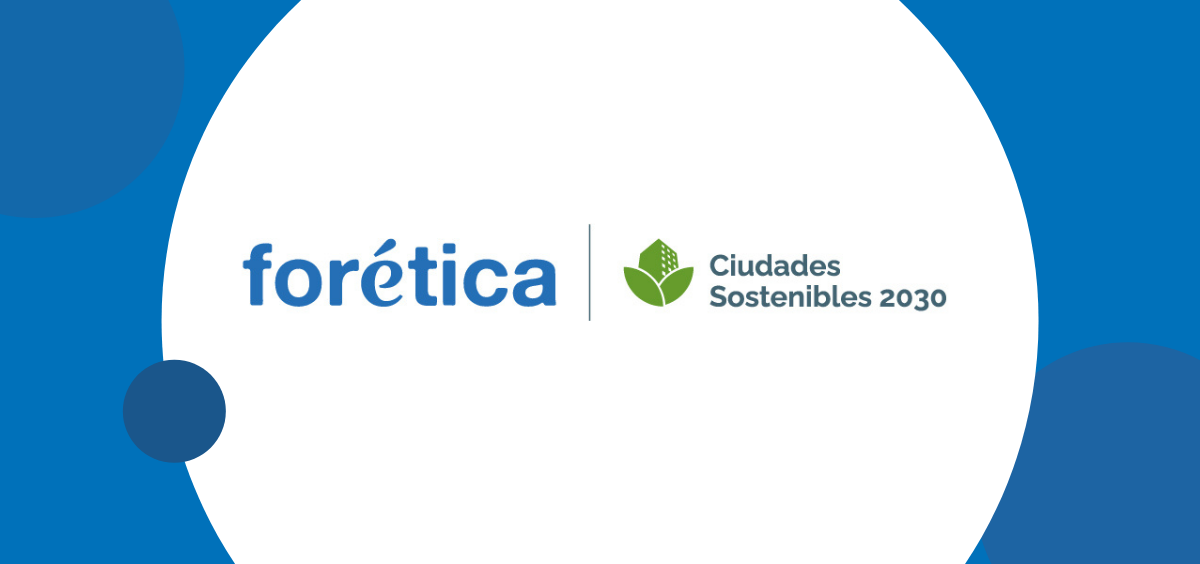

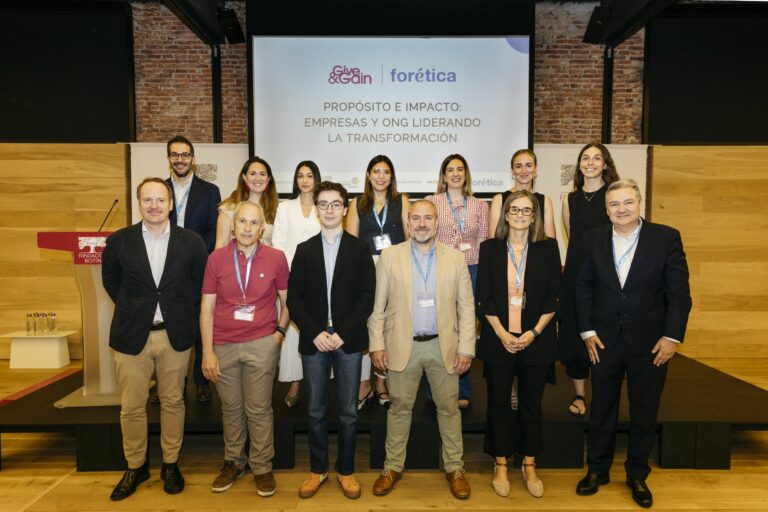

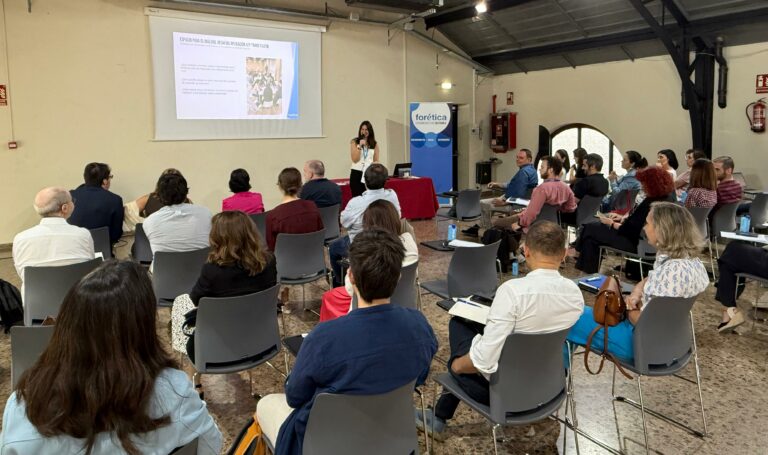
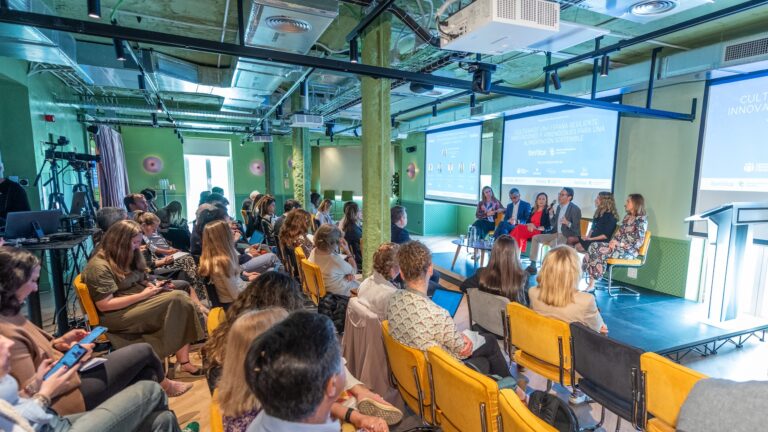

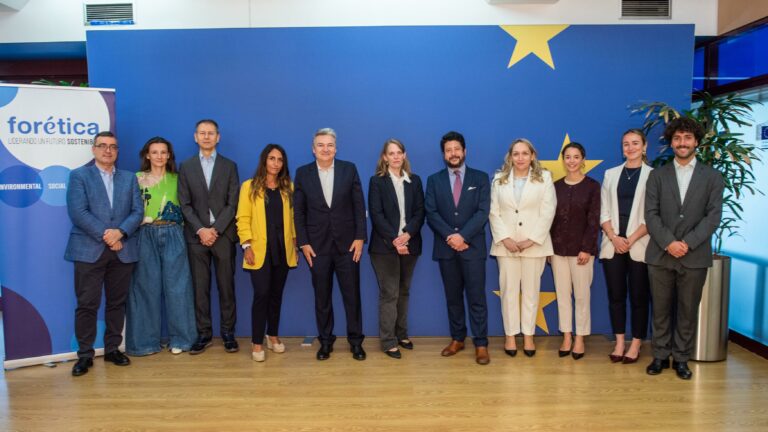
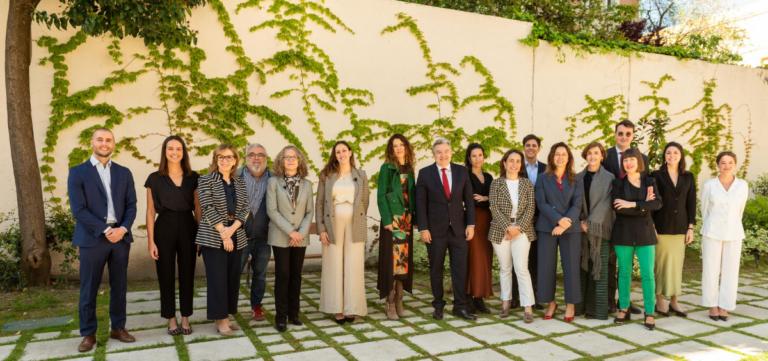
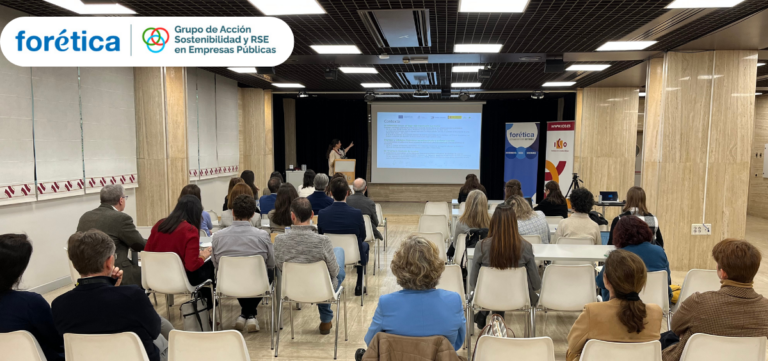
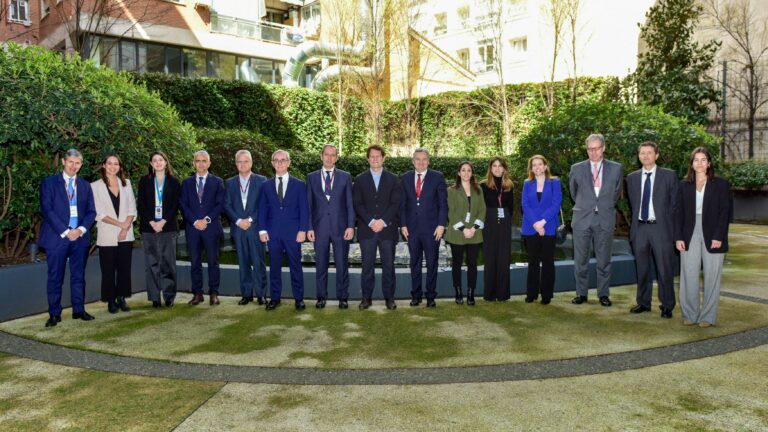


Déjanos tu comentario